By Ana V. Fleming, Communications Intern, Department of English
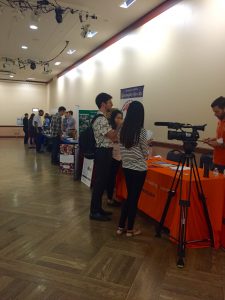 Career fairs. Consistently throughout my three, going on four, years here at the University of Illinois, that phrase has terrified me–along with all the things that go with it: pressure, elevator pitches, resumes, business casual. However, after attending a number of career fairs on campus —and similar events, like corporate after-hours and part-time job fairs—I’ve grown less averse to the idea.
Career fairs. Consistently throughout my three, going on four, years here at the University of Illinois, that phrase has terrified me–along with all the things that go with it: pressure, elevator pitches, resumes, business casual. However, after attending a number of career fairs on campus —and similar events, like corporate after-hours and part-time job fairs—I’ve grown less averse to the idea.
For instance, I recently attended the FOCUS part-time job and internship fair at the Illini Union as a senior in English. (I also attended the Department of Computer Science’s Corporate After Hours a couple of weeks ago, seeking out UI/UX design positions—I was even more of a fish out of water there!) At FOCUS, many of the students around me were from the College of Fine and Applied Arts, and many of the opportunities offered at the event were centered on graphic design (though, not all of them—there were opportunities for marketing, communications, videography, social media, and even content-development positions, among others that I probably missed). Personally, I was there seeking both writing positions and design positions; thus, I grew worried that the abundance of FAA students around me would overwhelm my chances of wrangling some of those design opportunities.
However, the fair wasn’t overly crowded, and the stakes were pretty low, so I decided to talk to as many of the represented companies and colleges (for instance, the College of ACES was there) as possible. As it turns out, most of the representatives were happy to speak with me, and each one that I spoke to took my resume for reference, regardless of whether or not they had any current openings that matched my skill set. At each booth, I asked about the kinds of jobs and internships the different companies had available, the expectations in terms of hours and pay, and their goals for the semester (or upcoming semesters). In return, they asked me about my familiarity with the company, my knowledge of certain software, and whether or not I was interested in the projects they were recruiting for.
While the fair represented around twenty companies, and I only had the time to talk to about eight of them, I could already perceive a wealth of opportunities. Everyone had been perfectly happy to talk to me, and no one made any assumptions about my competence in regards to writing or design—rather, they gave me the chance to discuss my experience and describe my capabilities. The event was pretty casual, and I walked out of the Illini Union Ballroom with the knowledge that, at the very least, I was exposed to some new opportunities, I had links to some applications in hand, and, through mere exposure and repetition, I was slightly less intimidated by career fairs and interview-style interactions than I had been walking in there (even 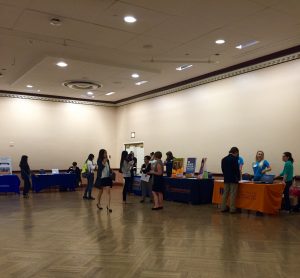 as a senior).
as a senior).
Enormous fairs like the Engineering Career Fair and Business Career Fair can be a lot to tackle at the beginning of the semester, but they are by no means the only opportunities to connect with companies. If you’re ever wondering whether or not you should attend a career fair, I’d suggest going for it, especially when smaller, more focused events like the aptly-named FOCUS are within your reach.
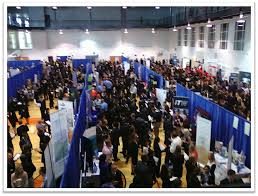 Know that not only is the fair open to all majors, but many employers come hoping to meet majors from all over the university. If you’re inclined to go, you should go. If you’re not sure whether you’re inclined or not (you’re unsure about whether “business” is for you), you should go–talking to employers is a great way to find out.
Know that not only is the fair open to all majors, but many employers come hoping to meet majors from all over the university. If you’re inclined to go, you should go. If you’re not sure whether you’re inclined or not (you’re unsure about whether “business” is for you), you should go–talking to employers is a great way to find out.
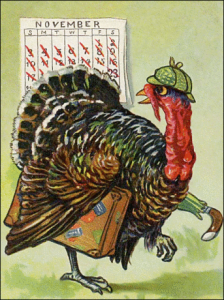

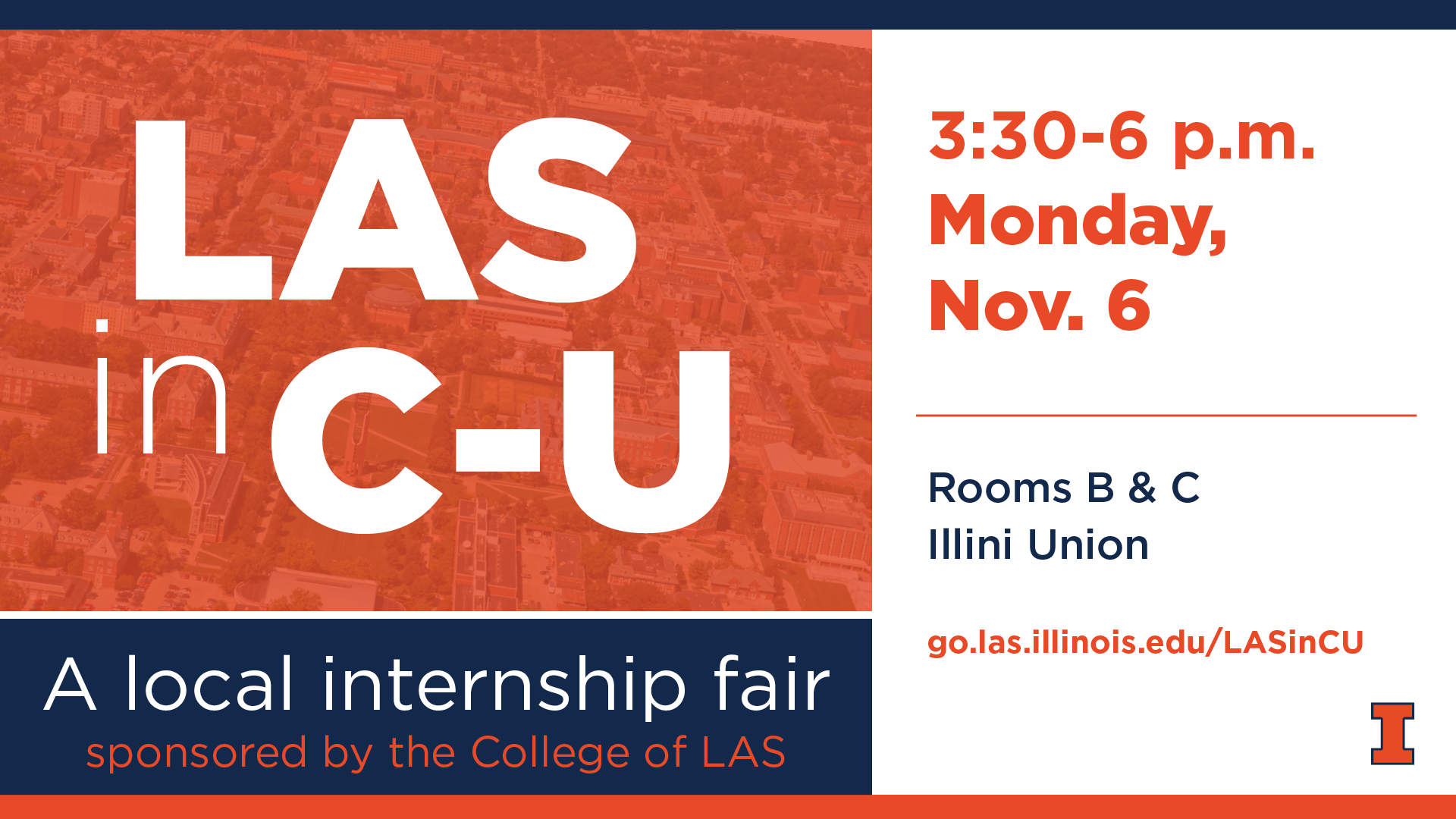
 Career fairs. Consistently throughout my three, going on four, years here at the University of Illinois, that phrase has terrified me–along with all the things that go with it: pressure, elevator pitches, resumes, business casual. However, after attending a number of career fairs on campus —and similar events, like corporate after-hours and part-time job fairs—I’ve grown less averse to the idea.
Career fairs. Consistently throughout my three, going on four, years here at the University of Illinois, that phrase has terrified me–along with all the things that go with it: pressure, elevator pitches, resumes, business casual. However, after attending a number of career fairs on campus —and similar events, like corporate after-hours and part-time job fairs—I’ve grown less averse to the idea. as a senior).
as a senior).